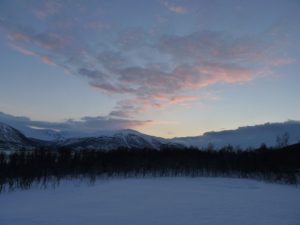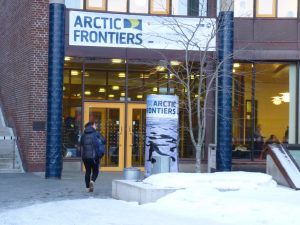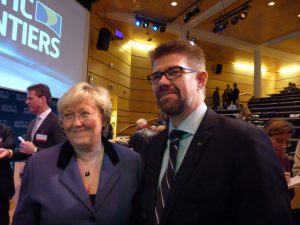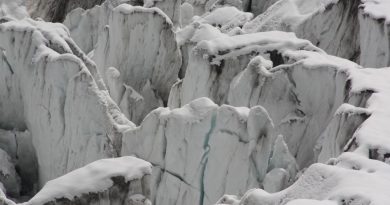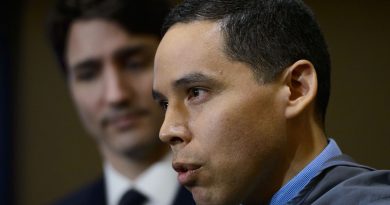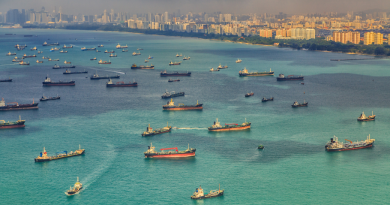Ice-Blog: Arctic hot topic in icy Tromso
It’s standing room only for anyone who came a bit late to the opening of Arctic Frontiers this morning.
This event has become huge. The organisers say there will be around a thousand participants and plenty of journalists. When I first came here six years ago, the number of journalists was minimal. Now the Arctic has moved up to the top of the international agenda because of climate change and easier access.
Politicians, scientists, diplomats, think tanks, participants from all round the globe have made the trip to Tromso in the Norwegian Arctic for what has become one of the major events relating to the Arctic.
The Norwegian Fisheries Minister was speaking this morning, the Foreign Minister of Iceland, the Chair of the Arctic Council Senior Officials group Canada’s Patrick Borbey and representatives from the USA and Russia. The UK, Japan and Italy have also been on stage – yes, the Arctic is clearly of relevance to the whole planet.
I will go into more detail later, but for now it must suffice to say they are all stressing their interest in Arctic development while (in theory?) protecting the environment and the human rights and traditional lifestyles of the indigenous peoples at home in this still remote and cold region at the top of the planet. Iceland’s Foreign Minister Gunnar Bragi Sveinsson told me he did not fear commercial development could be outpacing environmental protection. More from that interesting interview another time.
The Russian “Ambassador at Large” for the Arctic Anton Vasilev talked a lot about Russia’s interest in peaceful development and keeping military conflict out of the Arctic. Some of the participants were discussing at lunch how this fits the upsurge in military activity up there and the planting of the polar flag expedition, with both Russia and Canada claiming sovereignty.
This afternoon Statoil and other players are talking about oil and gas development. An interesting subject. Forgive me if I stop here to listen on. The debate is livening up with a question by a Sami participant to the Director General of the Norwegian Shipowners’ Association Sturla Henriksen. She’s asking (and she’s not alone) whether it wouldn’t be better to invest in new technologies and find ways of reducing emissions to halt the climate change which is causing problems for so many indigenous people in the Arctic. He says he respects indigenous traditions, but stresses shorter shipping routes for instance would benefit wider society in general.
More this evening! And tweets in between @iceblogger


